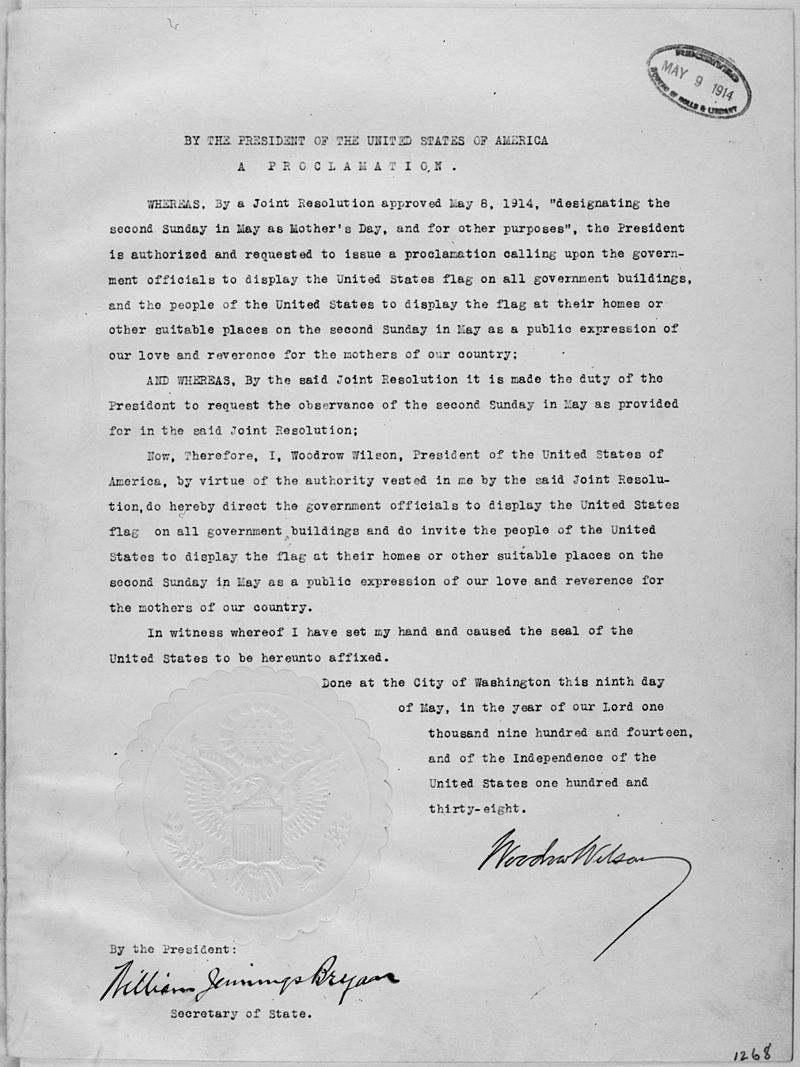President Wilson issued a proclamation, as was the custom:
By the President of the United States of AmericaThe news, overall, was pretty grim:
A Proclamation
It has long been the honored custom of our people to turn in the fruitful autumn of the year in praise and thanksgiving to Almighty God for His many blessings and mercies to us as a nation. That custom we can follow now even in the midst of the tragedy of a world shaken by war and immeasurable disaster, in the midst of sorrow and great peril, because even amidst the darkness that has gathered about us we can see the great blessings God has bestowed upon us, blessings that are better than mere peace of mind and prosperity of enterprise.
We have been given the opportunity to serve mankind as we once served ourselves in the great day of our Declaration of Independence, by taking up arms against a tyranny that threatened to master and debase men everywhere and joining with other free peoples in demanding for all the nations of the world what we then demanded and obtained for ourselves. In this day of the revelation of our duty not only to defend our own rights as nation but to defend also the rights of free men throughout the world, there has been vouchsafed us in full and inspiring measure the resolution and spirit of united action. We have been brought to one mind and purpose. A new vigor of common counsel and common action has been revealed in us. We should especially thank God that in such circumstances, in the midst of the greatest enterprise the spirits of men have ever entered upon, we have, if we but observe a reasonable and practicable economy, abundance with which to supply the needs of those associated with us as well as our own. A new light shines about us. The great duties of a new day awaken a new and greater national spirit in us. We shall never again be divided or wonder what stuff we are made of.
And while we render thanks for these things let us pray Almighty God that in all humbleness of spirit we may look always to Him for guidance; that we may be kept constant in the spirit and purpose of service; that by His grace our minds may be directed and our hands strengthened; and that in His good time liberty and security and peace and the comradeship of a common justice may be vouchsafed all the nations of the earth.
Wherefore, I, Woodrow Wilson, President of the United States of America, do hereby designate Thursday, the twenty-ninth day of November next as a day of thanksgiving and prayer, and invite the people throughout the land to cease upon that day from their ordinary occupations and in their several homes and places of worship to render thanks to God, the great ruler of nations.
In Witness Whereof, I have hereunto set my hand and caused the seal of the United States to be affixed.
Done in the District of Columbia this 7th day of November in the year of our Lord one thousand nine hundred and seventeen and of the independence of the United States of America the one hundred and forty-second.
WOODROW WILSON
The concern of what was going on with Russia, as can be seen, was mounting.
So what was Thanksgiving like in 1917 for average Americans? This item from A Hundred Years Ago gives us a glimpse/ This ran on A Hundred Years Ago prior to the 2017 Thanksgiving. I'm linking it in now, as the 1917 Thanksgiving was on this day, rather than the slightly earlier day in November we now celebrate it on. An interesting look at earlier Thanksgivings:
Interesting that goose was the meat of choice.Grandma’s 1914 Thanksgiving















































